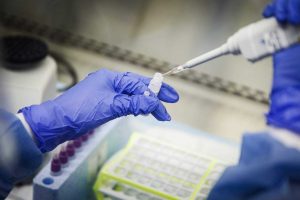The many ways in which COVID-19 can ravage a person’s health are well known, and the stress it has placed on healthcare systems across the globe has been similarly severe. Testing for the virus has posed problems since the onset of the pandemic due to the extremely high demand for the test and for the quickest possible results.
While we are still at least several months away from the introduction of a vaccine, there are a few developments that could more readily provide individuals with the essential information they need to protect themselves and others. Abbott Laboratories, an American leader in medical devices and healthcare, has developed a rapid COVID-19 test. Abbott’s website bills the antigen test as “a rapid, reliable, highly portable, and affordable tool for detecting active coronavirus infections at massive scale.”
Abbott's BinaxNOW™ COVID-19 Ag Card was recently approved by the FDA. There are other antigen tests on the market, but they rely on specialized equipment. Abbott’s test can yield results 15 minutes after a nasal swab, and can be used in most clinics, schools, and workplaces. Historically, antigen tests can lack in accuracy what they make up for in speed. However, the Abbott system correctly identifies positive COVID-19 cases 97.1% of the time, and negative cases 98.5% of the time.
The FDA provided emergency authorization to begin implementing the test, which will cost just $5. The company has stated it will ship tens of millions of tests this month and is in the process of increasing production so it can release 50 million tests per month beginning in October. The U.S. federal government purchased 150 million tests last month that it plans on shipping to schools and underserved populations.
Such an inexpensive, widely available test could eventually be used regularly by individuals to help increase awareness about their status, so they can self-quarantine as needed. While social distancing and masks help curb the spread immensely, the ability to quickly administer a test and receive almost instant results could arm people with the knowledge of their positive or negative status, leading to a break in the chain of transmission.























